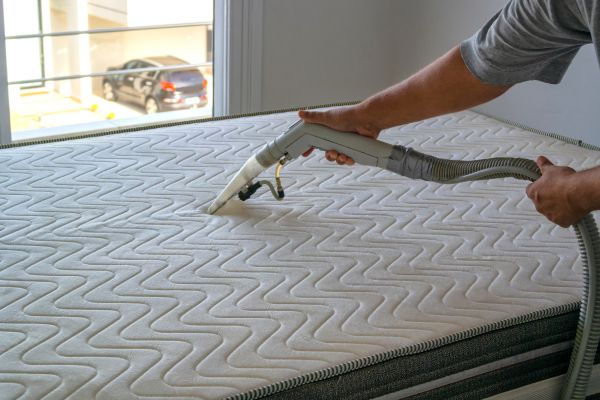Complete Guide: How to Store Wine at Home
Presentation of the importance of correct wine storage
The storage suitable for wine It is an essential aspect for lovers of this precious drink. When we talk about quality wines, it is essential to understand that the way they are stored can significantly affect their sensory characteristics and their evolution over time. Whether you're new to the world of wine or an experienced connoisseur, understanding the basics of storage is crucial to preserving and enjoying each glass with maximum satisfaction.
How Proper Storage Can Improve Wine Quality Over Time
Just like a seed that germinates and grows under ideal conditions, the wine it also ripens and develops exceptionally when stored correctly. Temperature, humidity, light and the position of the bottles can directly influence how the wine ages and how its aromas and flavors develop. Proper storage, whether short or long term, can improve a wine's complexity, soften aggressive tannins and enhance its unique characteristics.
Overview of Key Factors to Consider When Storing Wine at Home
The act of store wine at home it goes beyond simply stacking bottles in any corner. There are several factors to consider to ensure the wine remains at its best. Ambient temperature, for example, plays a crucial role, as excessive heat can accelerate aging, while extreme cold can lead to wine freezing and spoilage.
Furthermore, humidity must be controlled to prevent the corks from drying out and the possible entry of air into the bottle. Another important point is exposure to light, as ultraviolet light can cause undesirable reactions in wine components. How bottles are stored is also relevant, as any disturbance can affect proper maturation. Therefore, understanding all of these factors is essential to ensure that each bottle maintains its integrity and quality over time.
In this introduction, we begin our journey into the fascinating world of home wine storage. Throughout this guide, we will explore in detail each key aspect to ensure your wines are preserved in the best way possible. From choosing the ideal location to taking care of organization and labeling, we will delve into valuable tips and practices for connoisseurs who want to enjoy exceptionally aged wines. Let's go ahead and reveal the secrets of proper storage so that each glass is a unique and memorable experience!
Understanding the Nature of Wine
Explanation of the characteristics of wine that make it sensitive to the environment
Wine is an extraordinary drink, full of sensory and chemical complexities. Its unique characteristics, such as aroma, flavor and texture, are influenced both by the grapes used in production and by the fermentation and aging processes. However, what many don't know is that wine is sensitive to the environment in which it is stored. Changes in temperature, humidity and light exposure conditions can trigger unwanted reactions in the chemical compounds present in the drink. Therefore, understanding the sensitivity of wine to the environment is essential to maintain its quality over time.
Oxygen is a critical factor that can affect wine. In small amounts, contact with oxygen can be beneficial as it helps soften tannins and develop complex aromas. However, prolonged exposure to oxygen can lead to oxidation, resulting in deteriorated flavors and aromas. Likewise, extreme temperatures can harm wine. Excessive heat can accelerate the aging process and result in “cooked” wines, while intense cold can cause the liquid to expand and contract, compromising the cork seal and allowing air to enter.
The chemical components of wine and how they can be affected by improper storage
Wine is a complex mixture of chemical components, including alcohol, acids, sugars, tannins and esters, which play fundamental roles in its structure and flavor. During the storage process, these components can be affected by inappropriate conditions, resulting in unwanted changes to the beverage.
Tannins, for example, are natural compounds found in grape skins and are responsible for the sensation of astringency on the palate. When wine is exposed to air due to improper sealing or oxidation, the tannins can become excessively bitter, damaging the balance and delicacy of the drink. Furthermore, acidity is a critical factor in the longevity of wine, but high levels of humidity can corrode corks and allow air to enter, which leads to an unwanted increase in acidity.
Comparison between different types of wine and their specific storage needs
Each type of wine has its own distinct characteristics, and therefore its storage needs can vary significantly. Red wines, for example, generally contain more tannins and structure, which allows them to age well. These wines often benefit from aging in controlled environments, where they can evolve and develop complexity over time.
On the other hand, white wines are generally lighter and fresher, with less tannins and greater acidity. These wines are often enjoyed young and therefore generally do not require long storage periods. However, this does not mean that white wines cannot benefit from proper storage to preserve their fruity, fresh characteristics.
Fortified wines and sweet wines have higher levels of residual sugar, which makes them less susceptible to oxidation. However, it is essential to store them in cool, dark conditions to prevent unpleasant aromas from developing.
Understanding the unique nature of each wine and its chemical characteristics is crucial to choosing the most appropriate storage method. This way, you can ensure that each bottle is enjoyed at its best and make the most of the tasting experience over time.
Choosing the Storage Location
Home storage options: cellar, closet, shelf, etc.
When it comes to storing wine at home, there are several options available to choose from. The wine cellar is one of the most popular choices for true wine enthusiasts. It offers a controlled environment where temperature and humidity can be precisely adjusted, providing ideal conditions for aging bottles. However, if a dedicated wine cellar isn't a viable option, you can opt for a wine cabinet or rack. These solutions are more affordable and still allow you to organize your bottles with practicality and style. Even a shelf in a suitable location can be a valid alternative for storing a few bottles of wine.
The influence of the environment on wine quality: temperature, humidity and light
The environment where you store your wine has a significant impact on the quality and flavor of the drink. Temperature is perhaps the most critical factor. The ideal is to keep the wine at a constant temperature, around 12 to 18 degrees Celsius, avoiding sudden fluctuations that could harm the aging process. Humidity is also important, and it is recommended to maintain a relative humidity between 60% and 80% to prevent the corks from drying out and allowing air to enter. Finally, it is essential to protect the wine from light, especially ultraviolet light, which can cause unwanted reactions and deteriorate the wine's properties.
Tips for selecting the ideal place to store wine at home
When choosing a storage location for your wine at home, consider the previously mentioned factors. Look for a space that offers thermal stability, controlled humidity and low exposure to light. If you choose a wine cellar, make sure it is isolated from heat sources, such as electrical appliances or hot water pipes, and that it is kept in a dark place. If you choose a closet or shelf, choose an area with a stable temperature, away from direct sunlight and with good air circulation.
Another important tip is to position the bottles so that they are at rest and in contact with the cork, which helps to keep it moist and well sealed. Additionally, consider the storage capacity of the chosen space, taking into account the size of your current collection and space for future acquisitions. By selecting the ideal location to store wine at home, you will ensure that each bottle has the perfect environment to age elegantly and develop the exceptional flavors and aromas that make wine a true art to be enjoyed.
Organizing Storage Space
Methods for organizing and categorizing wine bottles
Properly organizing your wine bottles is essential to ensure you can access them easily and enjoy each label with pleasure. An efficient way to organize is to categorize wines according to their characteristics, such as region of origin, type of grape, vintage or even the ideal occasion for consumption. Using shelves or dividers marked with this information will help you find the bottle you want without having to rummage through your entire storage space. Furthermore, by organizing in order of aging, you can separate wines for immediate consumption from those that will be reserved for future occasions, ensuring that each one is enjoyed at the right time.
Stacking, positioning and labels: facilitating identification and access to wines
To maximize storage space, stacking bottles may be an option, but it is important to do so carefully to avoid damaging the corks. Proper stacking allows you to keep more bottles in a limited space, but make sure the bottles are well positioned and not under excessive pressure. Another strategy to facilitate wine identification is to ensure that labels are visible and legible. Additional markers with extra information, such as acquisition dates or tasting notes, can be added to help choose the right wine for each moment.
How to avoid shakes and disturbances that could affect the integrity of the wine
Wine storage must be handled with care to avoid any type of shaking or disturbance that could affect the integrity of the bottles. Avoid moving or shaking the bottles frequently, as this can disturb the sediment and affect the wine's aging process. Also, make sure that the location you choose for storage does not suffer from frequent vibrations, such as near noisy machines or appliances. Continuous vibration can affect the quality of the wine and result in unbalanced and unwanted flavors.
When organizing storage space, keep in mind that efficient organization not only protects the integrity of wines, but also makes the experience of enjoying each bottle more enjoyable. Proper organization will allow you to easily discover the aged treasures in your collection and access the perfect wines for every special occasion. With these practices, you will be prepared to appreciate the best that each bottle has to offer and live memorable experiences in the unique universe of wine.
Choosing the Right Bottles
The importance of bottle type in wine preservation
Choosing the type of bottle is a crucial aspect in the wine preservation process. Bottles play an important role in protecting wine against external influences and, therefore, maintaining its quality over time. Dark glass bottles are the most common and recommended for storing wine, as they help reduce exposure to light, which can cause damage to the chemical compounds in wine. Furthermore, bottles with shapes that allow adequate space between the liquid and the cork are ideal for minimizing the risk of air contamination. Carefully choosing the right bottles is the first step to ensuring your wines remain protected and in optimal condition for future consumption.
Clear versus colored bottles: impact on light exposure
Wine bottles come in many colors, and each color has a different impact on the wine's exposure to light. Clear bottles, common in white and rosé wines, offer little protection from light, which can lead to premature oxidation and the development of unwanted flavors. On the other hand, colored bottles, such as green and brown, are more efficient at blocking ultraviolet light, protecting the wine from damage caused by exposure to light. However, even colored bottles do not provide full protection, and it is recommended to store all wines in dark environments to avoid any negative impact on quality.
The role of corks and lids in sealing and preserving wine
Corks and lids are fundamental elements in sealing and preserving wine. The cork stopper has traditionally been used to seal wine bottles, allowing controlled micro-oxygenation that promotes proper aging. However, defective corks can allow air to enter and accelerate the oxidation process, resulting in spoiled wines. Recently, several alternatives have emerged, such as synthetic corks and screw caps, which offer a more effective seal and reduce the risk of TCA (trichloroanisole) contamination, which can cause musty odors in wines.
When choosing the right bottles for wine storage, consider the type of wine you are storing as well as the environment in which the bottles will be stored. Opting for dark glass bottles and ensuring adequate sealing with quality corks or efficient lids is essential to protect wine against harmful factors such as light and oxidation. This way, you can rest assured that your bottles are protected and that each glass will be a pleasant and enriching experience.
Caring for Environmental Conditions
Regulating temperature and humidity in storage space
Taking care of environmental conditions is essential to ensure that your wine ages properly and reaches its full potential. Temperature is the most critical factor and must be maintained at stable levels between 12 to 18 degrees Celsius. Very high temperatures can accelerate the aging process and cause damage to the wine, while very low temperatures can lead to freezing and impair its sensory characteristics. Furthermore, humidity is also important, and it is recommended to maintain a relative humidity between 60% and 80%. Adequate humidity prevents corks from drying out and ensures wine is protected from outside air. Monitoring and regulating the temperature and humidity in the storage space is an essential practice to ensure the quality and integrity of the wine over time.
Climate-controlled storage solutions: options for different budgets
If you are serious about storing your wine and looking for maximum quality, considering climate-controlled storage solutions could be a great choice. There are several options available for different budgets. Climate-controlled wine cellars are the most sophisticated and efficient option, allowing you to control temperature and humidity precisely. Although they may be more expensive, these cellars are ideal for wine collectors who want to ensure the best storage conditions. For more modest budgets, there are electric coolers and humidifiers that can be placed in smaller spaces and help maintain the appropriate temperature and humidity. Choosing the climate-controlled storage solution that best fits your budget and needs will ensure that your wine is stored with care and attention.
Avoiding sudden fluctuations in temperature and humidity
In addition to maintaining temperature and humidity at appropriate levels, it is important to avoid sudden fluctuations in these factors. Extreme variations can negatively affect the wine, causing aging problems and damaging the structure of the drink. To avoid fluctuations, choose a storage space that is protected from sources of extreme heat and cold, such as electrical appliances or areas exposed to direct sunlight. Also, avoid sudden changes in temperature around the bottles. A constant temperature and controlled environment are essential to ensure that your wine ages elegantly and maintains its unique sensory characteristics.
Taking care of the environmental conditions of the storage space is a task that requires attention and dedication. By maintaining the appropriate temperature and humidity and avoiding sudden fluctuations, you will be preserving the quality and integrity of the wine over time. Whether through climate-controlled solutions or careful adjustments to the environment, every effort to create an ideal storage space will be rewarded with exceptional aged wines and moments of unique pleasure and appreciation.
Storage of Special and Long-Term Wines
Cellar wines: how to store them properly for aging
Aging wines are those that were produced with the intention of aging for long periods, developing complex and enriching characteristics over time. Storing these wines properly is crucial to preserving their quality and aging potential. To do this, it is essential to follow all recommended practices, such as keeping bottles in an environment with a stable temperature, controlled humidity and away from direct light. Furthermore, for more precious aging wines, considering the use of climate-controlled cellars or storage under professional conditions may be a valid option. Carefully storing aging wines is an investment that yields precious rewards, allowing you to enjoy exceptional wines and exciting tasting moments throughout the years.
Rare and collectible wines: extra protection and security measures
Rare and collectible wines are true treasures for wine lovers, and storing them with extra protection and security measures is essential. In addition to following standard storage practices, it is recommended to consider a number of additional measures. An important aspect is ensuring the authenticity of the bottles, especially in a market that can be prone to counterfeits. When purchasing rare wines, be sure to obtain accurate information about their origin and provenance. Additionally, taking out specialized insurance for your wine collection is a way to protect your investment against any eventuality, such as damage or theft. Taking extra care when storing rare and collectible wines provides the peace of mind necessary to appreciate true oenological masterpieces with the confidence that they are properly preserved and protected.
Considerations for aging wines in barrels and casks
In addition to storage in bottles, another way of aging wine is carried out in barrels and barrels. This practice is common in wineries and producers who seek to impart special characteristics to the wine during aging. When it comes to aging in barrels, it is essential to select quality barrels, preferably oak, which can add complex flavors and aromas to the wine. Barrel storage also requires a temperature-controlled environment where aging conditions can be monitored and adjusted as needed. The use of barrels and casks for aging wine is an art
The Labeling and Cataloging Process
The importance of documentation and organization of bottles
Documentation and organization of wine bottles are fundamental aspects for any serious collector or connoisseur. Keeping a detailed record of the bottles purchased is essential to monitor the evolution of your collection and identify the best occasions to enjoy each label. Documentation may include information such as wine name, producer, vintage, region of origin, tasting notes and acquisition dates. Additionally, it is important to physically organize the bottles so that you can easily access them when desired. Proper documentation and organization allow you to have full control over your collection, making it easier to choose the ideal wines for each special moment.
Cataloging systems: from paper to digital technology
There are several options for cataloging your wine collection, from traditional paper to more advanced digital technology systems. For those who prefer the classic method, a notebook or log book can be used to write down information about each bottle. On the other hand, for technology enthusiasts, there are apps and software available that allow you to create a detailed database of your wine collection. These digital systems can be especially useful as they make it easy to access information from anywhere and allow for real-time updates. Regardless of the method chosen, cataloging is a powerful tool for managing your collection, ensuring that you have a complete and organized knowledge of all the bottles in your possession.
Facilitating the search and selection of wines with an efficient system
An efficient cataloging system not only makes it easier to organize your collection, but it also makes it easier to search and select wines for different occasions. With adequate documentation and an organized system, you can filter your collection by different criteria, such as type of wine, region, vintage or even tasting note. This allows you to quickly find the ideal wine to accompany a special meal, give as a gift to a loved one or simply to enjoy a glass of wine after a long day. Furthermore, an efficient search system also helps to avoid repeat purchases or forgotten bottles at the back of the cellar, ensuring that each wine is enjoyed at its perfect time.
Properly labeling and cataloging your wine collection is an essential practice for any serious connoisseur. Through detailed documentation and efficient organization, you can maintain full control of your collection, preserve precious memories of each bottle, and facilitate the search and selection of wines for special moments. Whether through the traditional paper method or through advanced digital systems, cataloging is a valuable investment that contributes to enhancing your experience as a wine connoisseur, allowing each bottle to become part of a unique and memorable story.
Tasting Stored Wines at Home
How to know the right time to open an aged wine
After dedicating time and care to storing your wines at home, the most anticipated moment arrives: tasting the aged wines. But how do you know the right time to open a bottle and appreciate all the potential it has developed over the years? This is a common question among wine lovers, and the answer often lies in a combination of factors. The vintage of the wine is an important factor to consider, as not all wines have the potential for long aging. Furthermore, detailed documentation of your collection can help, as you can check tasting notes and producer advice on the ideal storage time for each label. However, the best way to know the right time is to open the bottle and try it. If you notice that the wine has reached a remarkable balance between flavors, aromas and structure, then it's time to toast and enjoy a unique and special moment with each glass.
Appreciation of flavors enhanced by proper storage
Tasting aged wines is an enriching experience that reveals the complexity and depth that only time can provide. With proper storage, wines develop enhanced flavors that can range from notes of ripe fruit and spice to subtle nuances of oak and roasting. The aromas become more complex and pleasant, inviting you to explore each sensory layer. Furthermore, aging softens the acidity and tannins, making the wine softer and more balanced. Each glass becomes a journey of discovery, where you can appreciate the nuances that make each wine a unique expression of its terroir and aging process.
Sharing experiences and learnings with friends and family
Tasting aged wines is an experience that can be even more meaningful when shared with friends and family. When you open a special bottle, you have the opportunity to share your experiences and learnings about wine with loved ones. Each wine tells a story and provides an opportunity to enjoy moments of pleasure and reflection. Sharing these experiences with others can enrich the wine appreciation journey and create precious memories that will be remembered for years to come. Plus, by sharing your wines with friends and family, you can also learn from their impressions and insights, further enriching your own knowledge and appreciation for the fascinating world of wine.
Tasting aged wines is one of the most rewarding moments for wine lovers. Through a combination of knowledge, experience and intuition, you can determine the right time to open each bottle and enjoy the enhanced flavors that only aging can offer. Sharing this experience with friends and family makes everything even more special, creating memorable moments of appreciation and celebration around this ancient drink. So toast to life, friendship and the pleasure of tasting aged wines at home.
Conclusion
Recap of the main points for proper wine storage at home
Throughout this guide, we explore the fundamental aspects of properly storing wine at home. We begin by understanding the importance of this care to preserve the quality and aging potential of the wines. We discuss the main factors to consider, such as temperature, humidity, light and bottle positioning. Furthermore, we saw the importance of choosing suitable bottles, the use of climate-controlled solutions, the importance of documentation and cataloging and, finally, the pleasure of tasting aged wines.
Encouraging storage practices to enjoy exceptional aged wines
Storing wine at home is more than a collector's practice, it's a journey to appreciating exceptional aged wines. By dedicating time and care to creating an environment conducive to aging, you become the guardian of wines that gain value and meaning over the years. Each bottle you carefully select and store is an opportunity to experience the subtleties of time, allowing you to appreciate the evolution and complexity that wine can achieve. This practice is a true investment in unique sensory experiences and moments of delight, each time you decide to enjoy an aged bottle.
Encouragement for continued exploration of the world of wine
The world of wine is vast and diverse, with endless possibilities for exploration. By engaging in home wine storage, you become part of this fascinating journey, connecting with producers, regions and winemaking traditions around the world. As you delve deeper into this universe, there is always something new to learn and discover. Wine is a living, constantly evolving drink, and each tasting experience is an opportunity to expand your knowledge and palate. Therefore, we encourage you to continue this ongoing exploration, challenging yourself to try different wines, discover new vintages, regions and styles, and share your experiences with other wine lovers.
In this guide, we explore the basics of proper wine storage at home, from taking care of environmental conditions to choosing bottles and the aging process. By following these principles, you can be sure that your wines will be preserved with excellence and that each bottle is an opportunity to appreciate a work of oenological art in all its fullness. May each glass be a toast to the flavors, aromas and stories contained in each bottle of wine, and may you continue to explore and be enchanted by the universe of wine, collecting unforgettable experiences over the years. Health!






